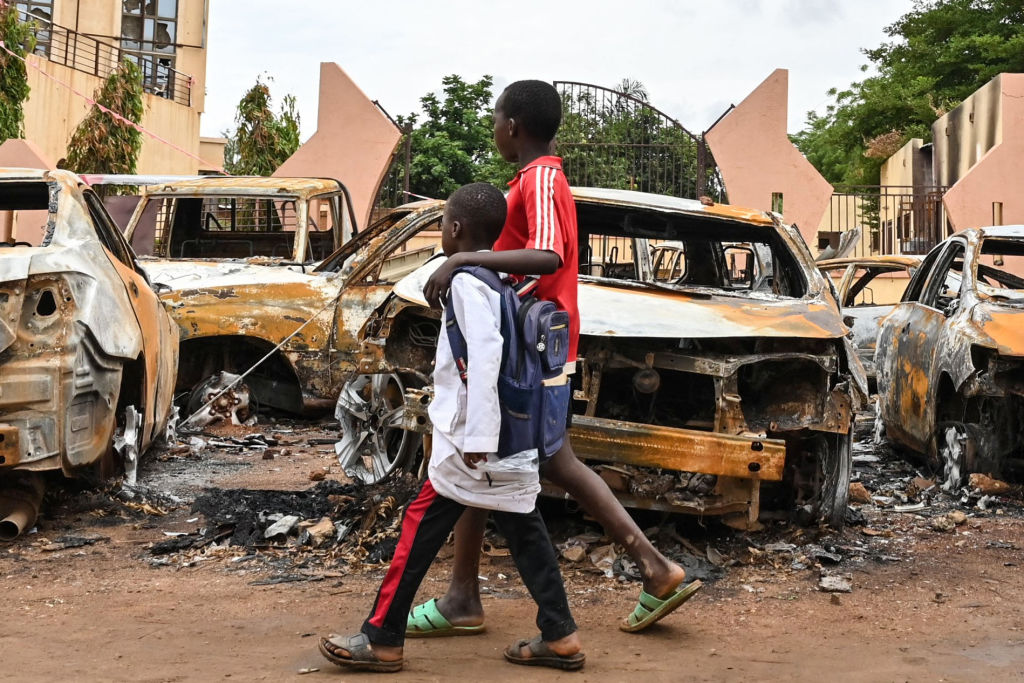Africans Voice Concern Over Rising Wave of Military Rule
ADF STAFF
The coup in Niger is the latest in a sharp rise of military takeovers that have undercut decades of democratic progress on the continent.
With juntas in charge from Guinea in the west to Sudan in the east, Africa now has what some are calling a “coup belt.”
“Africa has suffered a serious setback,” Kenyan President William Ruto said in a July 28 video response to the events in Niger.
African countries have experienced 98 coups between 1952 and 2022, according to a United Nations report on coups in Africa.
The U.N. Development Programme (UNDP) report, titled “Soldiers and Citizens: Military Coups and the Need for Democratic Renewal in Africa,” surveyed thousands of Africans and found that a majority have very little trust in military rulers.
The report, published on July 17, compiled the results of 8,000 interviews with civilians across the continent, including 5,000 Africans who lived through revolts in the coup belt countries of Burkina Faso, Chad, Guinea, Mali and Sudan.
The UNDP found that 41% of surveyed Africans living under military rulers and those undergoing government transitions were dissatisfied with current levels of safety.
A Sudanese man who participated in a focus group in Nyala, the capital of South Darfur state, said he was fed up with military rule.
“Dealing with arms doesn’t establish schools, institutes or provide services,” he said. “We just want a civil government.”
The focus group met in February 2023, before Sudan’s two top junta leaders clashed and plunged the country into a bloody civil war, which has seen a renewal of decades-old ethnic violence in Darfur.
A majority of interview subjects felt that the military gets involved in government to serve its own interests and preserve its status and privileges.
The report also noted that respondents in three countries that underwent an unconstitutional change of government — Guinea, Sudan and Mali — experienced a lack of political participation and inclusive economic growth.
Bankole Adeoye, the African Union Commissioner for Political Affairs, Peace and Security, is calling for more widespread participation in government as a way to push back against undemocratic seizure of power.
“Africa is overlooking the voices of citizens, especially women and youth,” he told The East African newspaper. “They must be heard, loud enough to resonate with change and inspire impact.
“There are many cases where the fabric of society is being excluded and is thereby left behind in the political sphere.”
The UNDP report cited a trend in which coups were popular at first, but the authors suggested that such support could be interpreted as a reaction against the status quo instead of an endorsement of military rule.
“This sensitive interplay between hope, delivery and expectation contributes to the risk of prolonged turbulence in transitional contexts,” the report stated.
The resurgence in coups has sounded an ominous warning about the potential for democratic backsliding due to a growing involvement of the military in governance and politics.
Nigerian President Bola Tinubu recently spoke out against coups before neighboring Niger fell prey to one.
“I call on all African leaders at all levels to make concerted efforts in respecting the tenets of democracy and the rule of law in order to ensure political stability on the continent,” he said during a July 15 AU coordination meeting.
The U.N. report suggested that coups in the past have the potential to inspire revolts in the present, as many African military leaders maintain significant influence in government.
Dr. Issaka K. Souaré, author of the book, “Civil Wars and Coup d’Etat in West Africa,” said there are numerous reasons coups can beget more coups.
“There’s a contagion effect,” he told The New York Times. “You see your colleagues in neighboring countries have toppled the civilians, and now the red carpet is rolled under their feet. You want the same.”


Comments are closed.